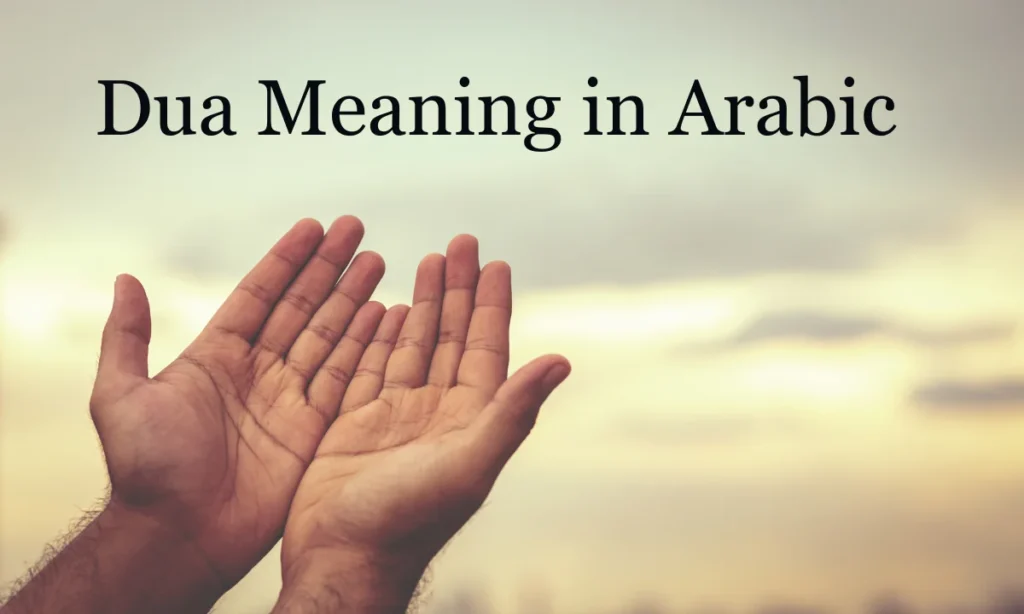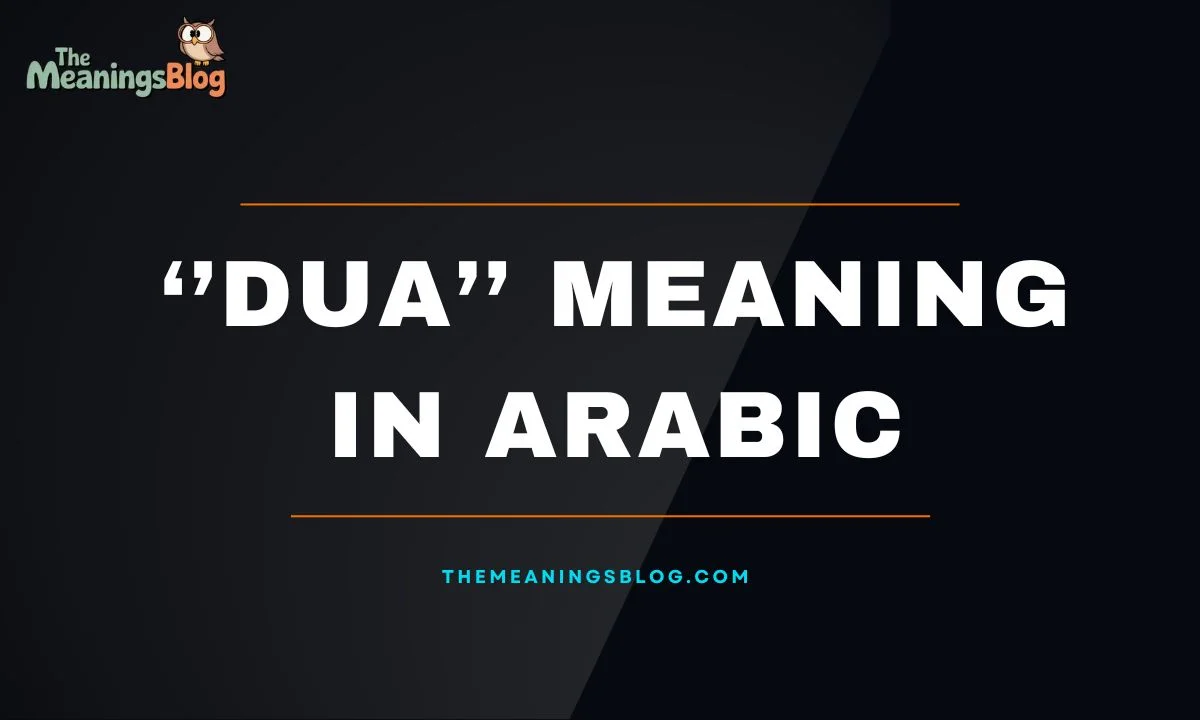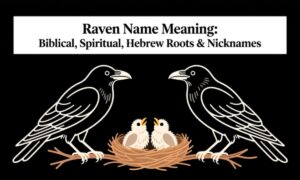The word Dua Meaning in Arabic, carries deep beauty and faith. It means to call upon Allah with hope and humility. Muslims use dua in their daily lives to ask for guidance, help, and mercy. It shows love and trust in Allah’s power and kindness.
In Arabic, Dua Meaning in Arabic, also reflects a spiritual bond between the believer and the Creator. It is more than just words; it is a heartfelt act of worship. Through dua, a person finds peace, strength, and connection with Allah. This simple word holds great meaning in the life of every Muslim.
Dua Meaning in Arabic

Dua represents Islamic invocation and supplication in Islam. It means calling upon God with sincere, heartfelt devotion. Muslims use dua to seek Allah’s guidance and blessings. This spiritual practice connects believers directly with their Creator.
Understanding how to pronounce the dua in Arabic helps properly. The word sounds like “doo-ah” with clear emphasis first. Correct pronunciation dua shows respect for this sacred term. Learning proper articulation improves your connection with Islamic practice.
Dua differs from regular conversation or casual prayer requests. It involves humility, faith, and complete trust in Allah. This supplication strengthens the bond between servant and Lord. Through dua, believers express their deepest needs and gratitude.
Linguistic Root and Grammatical Usage
The linguistic root د ع و forms dua’s foundation. This verbal noun in Arabic comes from calling and invocation. The root relates to requesting help or summoning assistance. Understanding this helps grasp the dua’s deeper meaning in context.
As a verbal noun in Arabic grammar, it transforms. The verb “yad’u” means to call or to invoke. This grammatical structure appears throughout the Quranic dua and hadith texts. Mastering these forms improves Arabic language comprehension significantly.
Grammatical Forms of Dua:
- As a definite noun: الدعاء (al-dua) means “the supplication” in formal speech
- As a verb form: يدعو (yad’u) translates as “he calls upon Allah”
- Plural form: أدعية (ad’iyah) refers to “multiple supplications or prayers”
- Active participle: الداعي (ad-da’i) means “the one who supplicates Allah”
- Passive form: مدعو (mad’u) indicates “the one being called or invoked”
Read More: Ameen Meaning in Arabic
Examples of “Dua” in Arabic Sentences
Arabic: الدعاء مخ العبادة ويحبه الله كثيراً.
English: Supplication is the essence of worship, and Allah loves it greatly.
Arabic: ادعو الله بقلب صادق وخالص دائماً.
English: Call upon Allah with a sincere and pure heart always.
Arabic: الدعاء في الصباح والمساء يحمي من الشرور.
English: Making dua during hardship in the morning and evening protects from evil.
Arabic: أفضل الأدعية هي الدعاء للوالدين بالرحمة.
English: The best duas in daily life include supplication for parents’ mercy.
Arabic: دعاء الله يغير القدر ويفتح أبواب الرزق.
English: Invocation to Allah changes destiny and opens doors of provision.
Arabic: تعلم الدعاء في القرآن يقوي إيمانك بالله.
English: Learning the Quranic dua strengthens your faith in Allah tremendously.
Arabic: الدعاء وقت السجود من أفضل الأوقات للإجابة.
English: Best times to make dua in Islam include during prostration.
Arabic: دعاء للمغفرة يمحو الذنوب ويطهر القلوب تماماً.
English: Dua for forgiveness in Islam erases sins and purifies hearts.
Arabic: أدعية مستجابة تأتي من قلب متواضع وخاشع.
English: Answered supplications come from a humble and submissive heart.
Arabic: الدعاء بين الأذان والإقامة لا يرد أبداً.
English: Prayer vs dua between adhan and iqama is never rejected.
Cultural or Quranic Significance of “Dua”
Arabic: وَإِذَا سَأَلَكَ عِبَادِي عَنِّي فَإِنِّي قَرِيبٌ أُجِيبُ دَعْوَةَ الدَّاعِ إِذَا دَعَانِ.
English: “And when My servants ask you concerning Me, indeed I am near. I respond to the invocation of the supplicant when he calls upon Me.” (Quran 2:186)
This verse reveals Allah’s closeness to His servants always. It shows that calling upon God brings immediate divine attention. The meaning of supplication becomes clear through this promise. Muslims find comfort knowing Allah hears every sincere request.
Examples of dua from the Quran and hadith teach believers. These teach proper etiquette and timing for spiritual practice. Understanding the Quranic dua helps connect with Allah’s words directly. This knowledge transforms supplication into a powerful worship tool.
Arabic: ادْعُونِي أَسْتَجِبْ لَكُمْ إِنَّ الَّذِينَ يَسْتَكْبِرُونَ عَنْ عِبَادَتِي سَيَدْخُلُونَ جَهَنَّمَ دَاخِرِينَ.
English: “Call upon Me; I will respond to you. Indeed, those who disdain My worship will enter Hell rendered contemptible.” (Quran 40:60)
This verse establishes dua as an act of worship. It promises a divine response to those who humble themselves. Hadith about dua reinforces this message in the Prophet’s teachings. Neglecting supplication shows arrogance that Allah strongly warns against.
The Prophet Muhammad emphasized types of dua in various situations. He taught specific supplications for morning, evening, and hardship. Learning the dua in Arabic and English translation preserves meaning. This Islamic spiritual practice remains central to Muslim daily life.
Common Misunderstandings or Mistakes
- Many people confuse dua with salat, but dua is personal supplication while salat is formal ritual prayer.
- Dua is pronounced “doo-ah” with emphasis on the first syllable, not “doo-aa” with an extended ending.
- Da’wah (دعوة) means inviting others to Islam, while dua (دُعَاء) means calling upon Allah directly.
- Salat requires specific times, movements, and ablution, but dua can be made anytime without these requirements.
- Some think dua must be in Arabic only, but Allah accepts sincere supplication in any language.
- Dua doesn’t require formal posture or cleanliness, unlike salat, which has strict physical requirements.
- The pronunciation of da’wah is “da-wah” with a sharp middle sound, different from dua’s softer flow.
- Many assume that dua guarantees immediate results, but Allah responds according to His perfect wisdom and timing.
- Salat is obligatory five times daily, while dua is highly encouraged but not obligatory in Islam.
- Confusing these terms shows misunderstanding: dua is conversation with Allah, salat is structured worship, and da’wah is Islamic outreach.
Difference between dua and salat in Islam
| Aspect | Dua (Supplication) | Salat (Formal Prayer) |
| Definition | Personal invocation and request to Allah | Structured ritual worship with a fixed format |
| Timing | Anytime, day or night, without restriction | Five specific times daily (obligatory) |
| Language | Any language acceptable with sincerity | Arabic required for main recitations |
| Purity Required | No ablution (wudu) is necessarily | Must have wudu and ritual purity |
| Physical Position | Any position: standing, sitting, lying down | Specific movements: standing, bowing, prostrating, sitting |
| Obligation Level | Highly recommended (mustahabb) but optional | Obligatory (fard) for every Muslim |
| Direction | Can face any direction freely | Must face Qiblah (direction of Kaaba) |
| Format | Free expression in your own words | Fixed recitations and prescribed movements |
| Duration | Can be very brief or extended | Takes several minutes per prayer |
| Content | Personal needs, gratitude, praise, requests | Quranic verses, tashahhud, specific dhikr |
Why You Should Learn “Dua”
Understanding Dua deepens your connection with Allah’s sacred words. Learning supplications helps you comprehend Quranic verses and meanings. Daily worship becomes more meaningful through proper dua practice. Communicating with Arabic speakers improves when you understand supplications.
Key Benefits of Learning Dua:
- Enhances Quran comprehension: Recognizing prophetic supplications while reading sacred texts enriches spiritual understanding significantly.
- Strengthens daily worship: Knowing appropriate duas for different situations transforms ordinary moments into acts of worship.
- Improves Arabic communication: Understanding dua helps you connect meaningfully with Arabic-speaking Muslims about faith matters.
- Builds spiritual confidence: Mastering proper pronunciation and meaning empowers you to call upon Allah with sincerity.
Also Read: YH Meaning in Text
Frequently Asked Questions
What is the Dua Meaning in Arabic?
Dua Meaning in Arabic, is supplication or calling upon Allah with sincerity and faith.
How do Muslims use Dua in daily life?
Muslims make Dua to seek help, guidance, and blessings from Allah in every part of life.
What is the correct pronunciation of Dua in Arabic?
It is pronounced as “doo-ah,” with stress on the first syllable.
What is the root word of Dua in Arabic?
The root of Dua is “da‘a” (دعا), which means to call or invite.
Why is Dua important in Islam?
Dua is important because it connects a person directly to Allah and strengthens faith.
Last Words
The Dua Meaning in Arabic teaches us the value of speaking to Allah with honesty and heart. It is a simple yet powerful way to show faith and gratitude. Every Dua reminds us that Allah listens to our words and understands our needs. Through Dua, we find peace and strength in every moment.
Learning the Dua Meaning in Arabic helps us grow closer to our Creator. It deepens our understanding of worship and trust. Whether in happiness or hardship, Dua keeps our hearts connected to Allah. It is a gift that brings light, hope, and comfort to the soul.

Noah shares deep insights into meanings, metaphors, celebrity and Net Worth, inspiring readers with wisdom and reflection. His passion is uncovering hidden truths that bring clarity, inspiration, and spiritual growth to everyday life.








